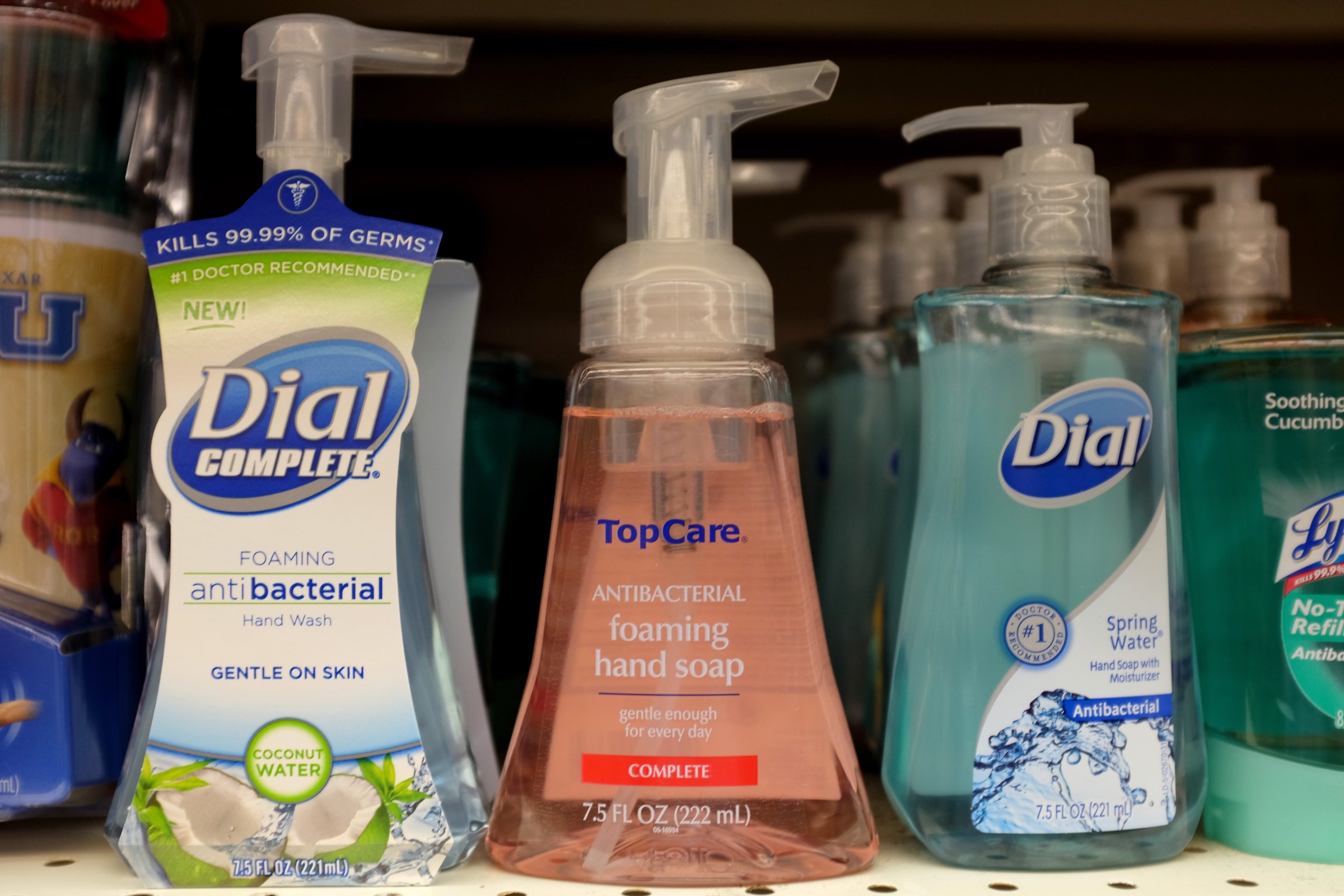
Adding to the evidence against the safety of antibacterial soaps, researchers have found that pregnant women and fetuses that are exposed to triclosan and triclocarban — two common ingredients found in germ-killing soap — could face health risks.
The report released by the American Chemical Society (ACS), which will be presented at the 248th National Meeting & Exposition of the ACS, found that pregnant women and their fetuses were being exposed to antimicrobials, an agent that kills micro-organisms. “We found triclosan in all of the urine samples from the pregnant women that we screened. We also detected it in about half of the umbilical-cord blood samples we took, which means it transfers to fetuses. Triclocarban was also in many of the samples,” one of the researchers, Benny Pycke, told ACS.
Researchers also found a link between women with high levels of butyl paraben — an antimicrobial found in many cosmetics — and shorter newborn lengths, although the long-term consequences of this remains unclear.
The research led by Rolf Halden, a professor at Arizona State University, adds to previous studies proving that antibacterial products could also cause bacterial resistance and a decrease in thyroid hormones. In reaction to the growing controversy surrounding antimicrobials, the Food and Drug Administration announced in December 2013 that antibacterial hand soap and body wash manufacturers would have to prove that their products were safe for long-term use and were more effective than regular soap at eliminating germs.
However, only removing a few products from the shelves may not eliminate exposure to the deleterious effects of antimicrobials. Scientists say the ingredients are difficult to avoid because they are found in over 2,000 products including paints, soaps, detergents and toothpastes.
At the very least, the ACS says the findings are alerting policymakers and adding additional pressure on companies to remanufacture their products to remain on the market. Johnson & Johnson and Procter & Gamble have already planned to remove triclosan from some products.
More Must-Reads from TIME
- Cybersecurity Experts Are Sounding the Alarm on DOGE
- Meet the 2025 Women of the Year
- The Harsh Truth About Disability Inclusion
- Why Do More Young Adults Have Cancer?
- Colman Domingo Leads With Radical Love
- How to Get Better at Doing Things Alone
- Michelle Zauner Stares Down the Darkness
Contact us at letters@time.com